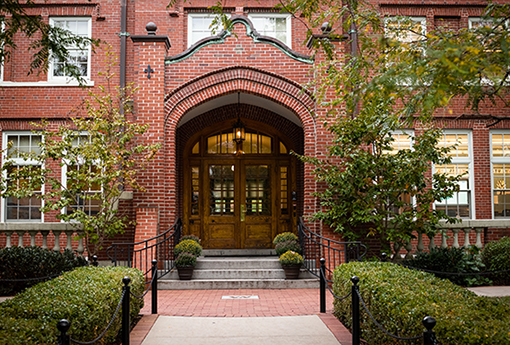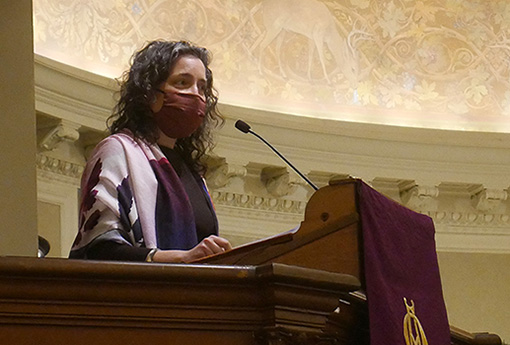
Repair The World
June 1, 2020
Hear this message in an audio version.
To our Wheeler Community,
I have been thinking a lot about the Jewish concept of tikkun olam, or repair the world, this week, because my daughter will become bat mitzvah this weekend (over Zoom, of course), and as with any adult rite of passage, this is the moment she takes official responsibility for ethical behavior (though with any luck, we have instilled some already).
Over these weeks, as we all note the passage of time as fuzzy and the foggy conditions making normal activities more tiresome, there have been a number of acts of racial violence stemming directly from our nation’s history of systemic racism, and promoted by some deafening silence and worse, promotion from bystanders. George Floyd. Breonna Taylor. Ahmaud Arbery. Mothers, sisters, brothers, sons, fathers have been taken from us in ways that are reprehensible and unacceptable, and we have reason to be enraged.
We also have reason to double down on our promise to try to repair the world with our actions and in our school, to do our work to move our nation closer to our promised “more perfect union.” When we spoke about this at my dinner table this week, we spoke about the role of police and how to understand the concept of implicit bias and systemic racism. These are emotional, hard and complex topics, and thankfully, my children told me they’d discussed this at school. (Thank you, Wheeler faculty.) But their understanding was most real when I told them a story of a colleague who described to me what it felt like to watch her African American son leave her house to stretch to go out for a run. As a car drove down the street and a white driver slowed down to look from the drivers’ seat at her son, she told me her heart stopped and it was all she could do to stop herself from running outside to stand in front of him to tell the driver that he was standing in front of his home. For many of us who are white, this kind of terror can be hard to understand, but a mother’s fear is universal. So I ask for us to be reminded that this is happening to all of us, among all of us. This hurt is all of ours. And it is a powerful reminder for me to push away the fog and stay sharp, to put justice into action, as we promised in September of this year. If you remember, at that time, I asked you to consider Ross Gay’s wise words: “I often think the gap in our speaking about and for justice, or working for justice, is that we forget to advocate for what we love, for what we find beautiful and necessary. …[I]magining, and holding in one’s imagination what is wonderful and to be adored and preserved and exalted is harder for us, it seems.” In the midst of all of this tragedy and sorrow, we have to continue to look to that which we can preserve and exalt, even when our anger and fear can drive us to want to do the opposite.
One of the most treasured aspects of our community is that after moments of terrible tragedies at Wheeler, we come together. We hold one another, we cry and sometimes laugh if we need that too. We find gathering spaces. Zoom is helpful, but it isn’t enough and it doesn’t replace that human instinct to grieve or express emotions like rage or love or empathy through proximity through whispered thoughts and locked arms. This loss is especially poignant in the face of these tragedies.
So I offer my love to those families whose loved ones have been taken from them, our continued commitment to a more just future that can be created through teaching and discussion of equity and justice whether we are together in physical space or apart, and my request to us all to not let silence be our response. All of us – faculty, staff, families – as appropriate, please find time to talk about equity and justice with children in whatever way makes sense for them based on their age. Let’s not be afraid of difficult topics and challenging dilemmas. No matter who we are, but especially when we are white, when we are silent, we compound generational pain. In our community, there are mothers and brothers and sisters and fathers who worry when children go out for a jog or bike ride, or forget their drivers’ license on the table, or are scared by a knock at the door. As with all we care most deeply about, discussions – complex, nuanced, science and fact-based, and patient – beget knowledge and more importantly, action on behalf of our whole community, as well as our neighbors and friends.
Allison Gaines Pell
Head of School

